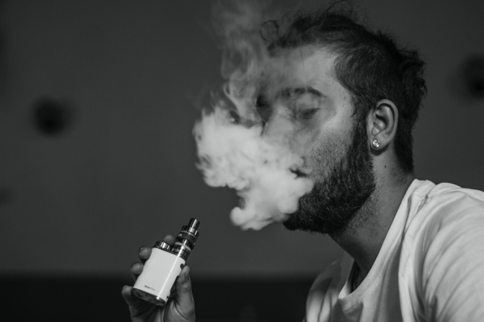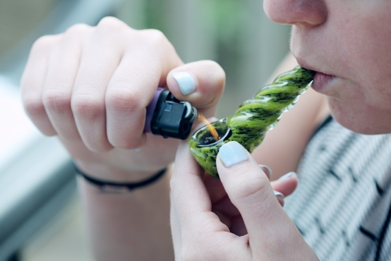Just a few weeks ago, a teen client arrived to my office stoned. I didn’t recognize it right away, but her droopy eyelids and clumsy small talk gave her away. She was surprised when I dropped the question: “Are you high?” But to her credit, she answered honestly. That’s where the real work happens. I do my best to listen, encourage, challenge, and empower teens to make connections that help them reach their goals.
I wrote this blog because marijuana use in teens worries me greatly. At work, I meet many teens who develop serious problems in relation to their marijuana use. Like, failing grades, memory difficulties, anxiety and depression, hospitalizations, legal problems, and chronic family conflict.
But here’s the good news: Talking with your kids about marijuana can help delay their first use (if they use at all) and protect their brain.
As parents, we’ll do anything for our kids. However, we can’t monitor them 24/7. My hope is to help parents become more in the “know” so they can take better steps to protect their kids.
Here are My Top 10 Concerns about Marijuana (THC) Use with Today’s Youth
#1 It’s harder for parents to detect and intervene.
- In the past, teens typically smoked marijuana in a rolled cigarette (joint), pipe, or bong.
- Today’s youth smoke liquid or wax THC in an electronic cigarette (aka vaping).
- Additionally, they eat edibles, like candy and cookies with THC and/or drink beverages with THC
- Teens use oils and tinctures that can be applied to the skin
- Plus, teens use synthetic or man-made similar products, such as K2 or “spice”

#2 Marijuana use in youth has increased significantly over the last decade.
Here are some astonishing statistics:
- Today’s teens are more likely to use marijuana than tobacco.
- In 2007, about 6.8 percent of 12 to 17-year-olds reporting using marijuana within the last month. In 2019:
- 11.8 percent of 8th graders reported marijuana use in the past year and 6.6 percent in the past month.
- Among 10th graders, 28.8 percent reported using marijuana in the past year and 18.4 percent in the past month.
- Among 12th graders, 35.7 percent reported using marijuana in the past year and 22.3 percent in the past month; 6.4 percent said they used marijuana daily or near-daily.

#3 Marijuana use impairs brain functioning, particularly in those under 18.

Here’s a quick summary of the research:
- Marijuana alters the way the hippocampus (the brain area responsible for memory formation) functions.
- Negative effects on attention, memory, and learning can last for days or weeks after the acute effects of the drug wear off, depending on the person’s history with the drug.
- Heavy users, like those who use marijuana daily, are at risk for long-term cognitive impairments (e.g., lower IQ, long-term memory problems).
- Marijuana has its strongest long-term impact on young people whose brains are still busy building new connections and maturing in other ways.
- In other words, using cannabis during key stages of brain development can impact synaptic pruning (when old neural connections are deleted) and the development of white matter (which transmits signals in the brain).
#4 Marijuana use has been linked to an increased risk for mental illness, and a worsening in current mental health symptoms.
Here’s a quick summary of the research:
- Marijuana use is higher in youth with certain diagnoses, like anxiety, ADHD, and depression.
- What teens don’t realize is that using THC can actually cause mental health symptoms, like anxiety (e.g., panic attacks), psychosis, depression and sleep disorders.
- Cannabis use can also trigger psychotic symptoms in youth with a genetic risk for schizophrenia. That’s why it is particularly dangerous for youth with family histories of psychosis to use marijuana.
- Additionally, regular users have double the risk of psychotic episodes than non-users.

#5 Frequent marijuana use is associated with worsening school performance.
- Considerable evidence suggests that students who smoke marijuana have much poorer educational outcomes than their nonsmoking peers. While this one may not surprise most parents, it’s good to know that we aren’t being paranoid when we warn our kids about marijuana use.
- For example, a review of 48 studies found marijuana use to be associated with reduced chances of graduating, and poorer concentration, motivation, and memory.
- In other words, marijuana use can royally screw up your kid’s future.
#6 Next to alcohol, marijuana is the second most frequently found substance in the bodies of drivers involved in fatal automobile accidents.
- That’s because it significantly impairs judgment, motor coordination, and reaction time.
- Additionally, large studies have found that drivers with THC in their blood were roughly TWICE as likely to be culpable for a fatal crash than drivers who had not used drugs or alcohol.

#7 Marijuana use can lead to substance dependence and addiction.
- Recent data suggests that about 30 percent of those who use marijuana may have some degree of marijuana-use disorder.
- People who use marijuana frequently often report irritability, sleep difficulties, decreased appetite, cravings, restlessness, and other physical discomfort that peak within the first week after quitting. These symptoms can last up to 2 weeks.
- Dependence occurs when the brain adapts to large amounts of the drug by reducing production of and sensitivity to its own endocannabinoid neurotransmitters. This then leads to an increase in use.
#8 Marijuana use is riskier for today’s youth given the rise in potency.
- Today’s marijuana plants are grown differently than in the past.
- More specifically, they can contain two to three times more tetrahydrocannabinol (THC), the ingredient that makes people high. (side note: The ingredient of the marijuana plant thought to have most medical benefits, cannabidiol (CBD), has not increased and remains at about 1%).
- In the early 1990s, the average THC content in marijuana samples was roughly 3.8 percent.
- In 2014, it was 12.2 percent.
- Today, the average marijuana extract contains more than 50 percent THC, with some samples exceeding 80 percent.
- Therefore, the consequences of marijuana use could be way worse than in the past, particularly for young people whose brains are still developing.
#9 Long-term use can cause breathing problems, possibly lung cancer, and even death.
- Coughs and lung infections are not uncommon in regular marijuana users
- Research is mixed about lung cancer risks. One reason for this is that until recently, marijuana use was illegal, which limited people’s willingness to share about their use, and thus research opportunities.
- Here’s what is known:
- Marijuana smoke has many of the same harmful substances as tobacco, and often more of them. Among the hazards are substances like:
- Benzo(a)pyrene
- Phenols
- Vinyl chlorides
- Nitrosamines
- Reactive oxygen species
- Plus, teens smoke marijuana in a different way than tobacco. Possibly posing greater danger to the lungs.
- For example, teens usually inhale marijuana smoke deeply and hold it in. This gives the toxins more contact with your lung tissue and more chance to stick there.
- When scientists looked at lung tissue of some people who smoked weed regularly. They found changes that are known to signal the future growth of cancer.
- Vaping marijuana has also been associated with serious health consequences, including hospital admissions and deaths.
- Recently, the Center for Disease Control (CDC) concluded that products containing THC are a main culprit and should be avoided.
#10 This last one is purely anecdotal, but it speaks volumes to me. Nearly all of the teens I’ve known who smoke marijuana regularly lose their “spark.”
This spark looks different for each person, but here’s what I’ve noticed.
- Teens who smoke regularly lose that twinkle in their eyes
- They don’t yammer on and on about their interests in that cute, annoying way anymore
- Remember Donkey in Shrek? That’s the part of them that fades away

What Can Parents Do
- It’s really important to begin talking about the risks with your child early, like when they’re in late elementary school. Then keep the conversation going.

- Ask your child/ teen questions about what they know about marijuana and LISTEN (don’t interrupt!). Avoid making angry or negative comments. This will establish trust and a safe space to discuss heated topics. And very importantly – if your teen is high – DO NOT try to talk about your concerns then. Wait until they are sober.
- Explain that research tells us that the brain continues to mature into the 20’s. That’s why there is greater risk of harm from marijuana use during teen years.
- Model a healthy lifestyle yourself! (e.g., exercise, avoid fast food, take a cat nap if you need one, and if you choose to smoke, don’t do it around your kids)

- Try not to overreact if you find out that your teen is experimenting with marijuana. Experimentation is normal with teens. Remaining calm is important. Then you can talk rationally and listen better. This pamphlet entitled Marijuana and the Responsible Parent is an excellent resource to help you talk about marijuana with your teen.
Helpful Books and Articles
Quitting Weed: The Complete Guide by Matthew Clarke – This is my absolute favorite book about this topic!!!!!! The author writes well and shares his own personal story and the specific steps he took to quit smoking marijuana after many years of addiction.
https://ndarc.med.unsw.edu.au/blog/does-cannabis-cause-mental-illness
https://www.mhanational.org/risky-business-marijuana-use


